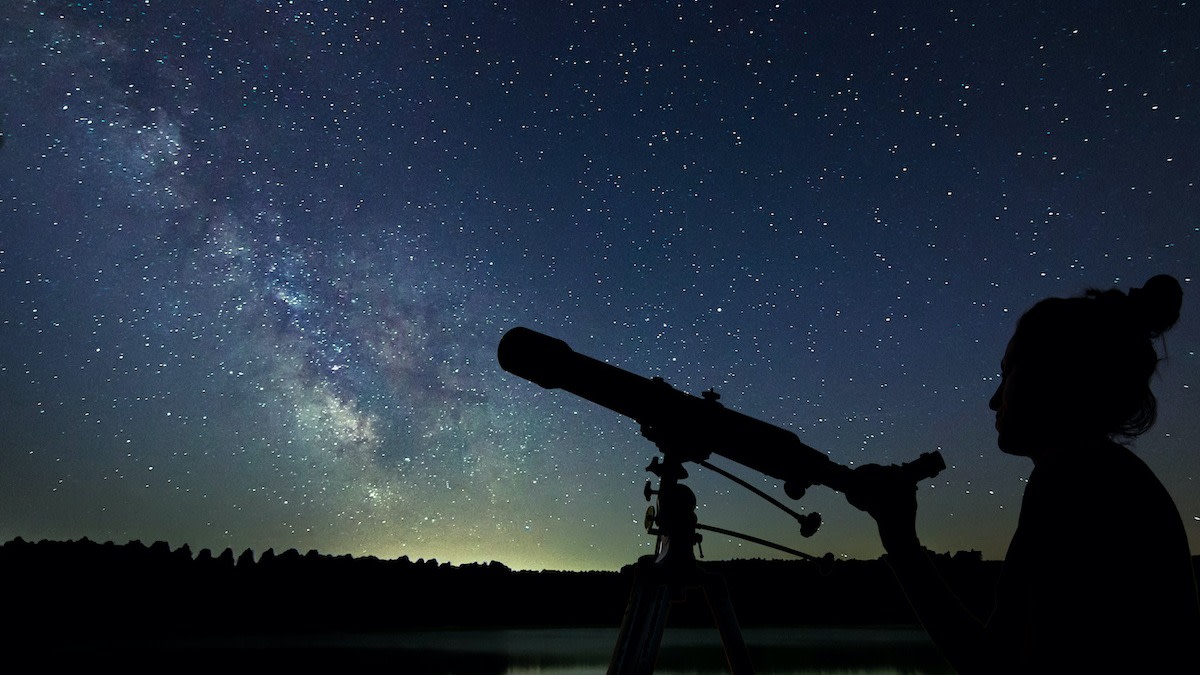How to Become an Astronomer: 6 Tips for Future Astronomers
Written by MasterClass
Last updated: Jun 7, 2021 • 4 min read
Have you always had a fascination with planets, black holes, and meteors? If so, you should explore the possibility of working in the field of astronomy. Whether your interests lie in working at a local laboratory or working alongside the nation’s leading astronomers at NASA, you’ll need to take a few key steps to become an astronomer.
Learn From the Best
What Is an Astronomer?
Astronomers use physics, math, and instrumentation to study the universe to help humankind better understand everything from black holes to planetary systems. Astronomers usually work in large teams of scientists, working either in an office or in an observatory to gather, record, and publish their findings. Most astronomers will choose an area of specialization— often focusing on planetary physics, quantum mechanics, celestial bodies, stellar phenomena, the history and future of the universe, or the sun.
What Does an Astronomer Do?
A typical astronomer may have a wide variety of responsibilities:
- Develop hypotheses. Astronomers help humankind learn more about the universe, which means that they need to develop new scientific theories to test and prove (or disprove).
- Write research proposals. While many astronomy labs receive funding from the federal government, most teams of astronomers don’t have the funding to simply research their interests. Instead, after they develop their hypotheses, they must compile detailed research proposals to pitch their research goals to their leadership for funding.
- Gather and analyze data. Most astronomers spend their time gathering data—most often through operating telescopes, using powerful cameras, or developing and testing complex models using computer software—and then identifying trends in that data to draw scientific conclusions.
- Publish research papers. After an astronomer rigorously tests a hypothesis, they compose a detailed research paper that outlines their process and conclusions to further everyone’s understanding of their subject.
- Present their findings. Many astronomers travel around to different astronomy conferences to give presentations that detail their findings to other scientists and the general public.
What Skill Set Do You Need to Become an Astronomer?
Becoming an astronomer requires extensive education and specific skill set, including:
- A PhD in astronomy. Astronomy is a complex field that combines physics and mathematics in high-level computation, so you’ll need a lot of education to be competitive. Most astronomers have bachelor’s and graduate degrees in a scientific field (like physics, astronomy, astrophysics, or mathematics), and continue their education by earning a PhD in astronomy.
- Work or research experience. Most astronomy labs are highly competitive workplaces, meaning it’s difficult to get a job even with the proper education requirements. To make you a more desirable candidate, earn relevant work experience either during or between degrees—whether interning at a laboratory or working on research projects with professors.
- The ability to synthesize data. Astronomers deal with a massive amount of data, analyzing it and distilling it down into identifiable trends and patterns that either prove or disprove their hypotheses. To be a great astronomer, you’ll need to be comfortable synthesizing meaning from large amounts of data, often using computer software and your own problem-solving to help crunch the numbers.
- An insatiable curiosity. The best astronomers aren’t following a specific set of instructions to learn more about the universe—they’re asking questions and then gathering data to answer those questions. If you want to be an astronomer, you need to be very curious about the universe so that you have the capacity and drive to ask questions other people haven’t.
How to Become an Astronomer
Ready to start down the path to an astronomy position? Here are the steps:
- 1. Take astronomy-related classes in high school. If you’re in high school and considering a career in astronomy, it’s not too early to start. You can take a few classes and see if you like it. Look at your high school catalog for astronomy courses or courses in physics, computer science, or high-level math and try a few out to see what interests you most.
- 2. Earn an undergraduate degree in a scientific field. The first step to becoming an astronomer is to earn at least a bachelor’s degree in a science-related field—usually astronomy, physics, mathematics, or even computer science. Many PhD programs will accept applicants with only a bachelor’s degree, while others require both a bachelor’s and a master’s degree—do some research to decide what PhD programs you’d like to pursue. Try to be well-rounded in your study aim to take a wide variety of coursework, including the humanities, natural sciences, and social sciences. Taking different classes will also help you figure out what areas of astronomy you want to pursue (black holes, stars, solar systems, or planets, etc.).
- 3. Meet other aspiring astronomers. Joining a local astronomical society or the American Astronomical Society (if you’re in the United States) will also help you network with other aspiring astronomers. Fostering these relationships can lead to future work prospects.
- 4. Earn a doctorate in astronomy. After you earn the right degrees, you’ll need acceptance into a doctorate program for a PhD in astronomy.
- 5. Get a postdoctoral research position or fellowship. Once you’re an astronomy graduate, you can start applying for astronomer positions—but most laboratories will want to see some relevant work experience on your resume first. If you want to get an extra leg up on the competition, look for postdoctoral research positions or fellowships that can show you have what it takes to work as a professional astronomer.
- 6. Apply for astronomer positions. With an astronomy degree and relevant work experience, you can begin applying for work as an astronomer, whether in an office, a laboratory, a space agency, or an observatory.
Learn More
Get the MasterClass Annual Membership for exclusive access to video lessons taught by business and science luminaries, including Neil deGrasse Tyson, Chris Hadfield, Jane Goodall, and more.
